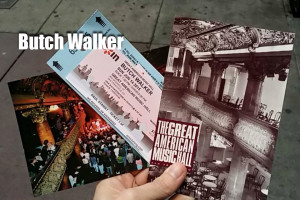The Fifth Of May
7 min read
 “Don’t put your hands in your pockets.”
“Don’t put your hands in your pockets.”
This, the sage rule passed on to my big brother and me. This was always to be followed when in a store. The reason? We’re Mexicans.
My parents grew up in the city of Cheyenne. For those of you unfamiliar, Cheyenne is the capital of the state of Wyoming. The state of Wyoming has never really broken 500,000 in terms of population. Pretty isolated is what you could call it. Within the past thirty years, our family has been unable to get service in some restaurants. So, not putting our hands in our pockets could seem like a reasonable tradeoff.
Today is Cinco de Mayo. Of course, a common misconception is that this is the Mexican Independence Day. Well, that’s in September. May 5th is the commemoration of an underdog defeat of the French army in a town called Puebla. It would be a proud day for any fledgling nation. However, every year as it rolls around, I am more than a little uncomfortable with the holiday. Why? Well, I think that it is a time when the nation watches the Mexican people put their hands in their pockets.
At an early age, I was uncomfortably aware of what the surrounding world assumed about me because of my ethnicity. Instead of becoming angry at the misconceptions of those who held them, I directed a lot of that anger inward. An early practice of mine was to emulate the speech patterns of television newscasters so that I would be sure not have the trademark pronunciation and cadence of Mexican English speakers. I really thought that were I to succeed in this life, I had to look and sound like the most unMexican Mexican possible.
It was in the first month of my first year in high school when such a confirmation came. It was standard for members of the forensic team to gather in the speech and debate room to daily have lunch. One day, someone asked me about my race. Dark features marked a race that was clearly not white. But, here I was a young man with burgeoning interests in the arts, alternative music, literature, and with nary a telltale Mexican lilt to my speech. When I put the fact out there, that I was indeed a Mexican, the response was…special.
“We would have had no idea!” was a typical response. Other responses were just as conciliatory in nature. These kids, most of them upper middle to upper class and most definitely not Mexican seemed to think it an encouraging thing to tell me that nothing about me lead them to the correct conclusion about my race. I guess I wore it well.
That episode was at a time in my life where I was still conflicted, at best, concerning the blood that ran through me. See, I didn’t know that it was possible to be the person who I knew I was created to be and be a Mexican. There was nothing about me that spelled out kitchen worker, janitor, or railroad worker. However, there was also nothing about me that spelled out lazy worthless drunk either. So, the conclusion had to be that the two loudest messages about my race were, at the very least, in opposition. Certainly, the kitchen workers, railroad workers, and janitors who I knew worked their asses off. Most of them did it for their families.
Not even three generations back, my family was made up of migrant workers. In those same three generations, the parents have taken up their offspring onto their shoulders and thrown them a bit farther than they knew they would ever get. You know, as I think about it, the families who grew up all around us in my Mexican church and in our Mexican neighborhoods have, by and large, this very thing in common. These people are people for who the American Dream, as it is billed, never really materialized. These people were able to further each subsequent generation in spite of job losses, unfair housing practices, and general spite from the community at large. Still despite this trend in the Mexican community, thinking that would be at home fifty years ago rears its head now and again.
Cheyenne has only two large public high schools. It is growing at such a rate that a third one will be added soon. Recently, the local school board met to decide what the new school’s name would be. The other two schools are named East and Central. These gained their names, as you’ve already surmised, from their locations in town. The new school is to be built about a half a mile from the house I grew up in. It is on the south side of Cheyenne. The south side is where a lot of affordable housing became available in the 1950’s and thus, a lot of Mexicans came to reside in and around here. The new school’s name, through much debate, will be South High. When this was decided, there was a comment regarding the new name printed in our local paper. In essence, this person was asking that the school board consider very carefully what the new name would be. This person felt that naming this school South High would unfairly stigmatize those who would attend the school but not live in that part of town. Really, the only stigma I can think of regarding this area of town is that this is where all the Mexicans live. Reassurance of what the world around us thinks of us now is never really far off and it pops up with regularity.
If I know our readers, by now you are asking, “So what?” You and I both know that minorities have gotten a bad rap. And I’ll bet you’re thinking, “Good. You and people you know have pulled yourselves up from where you came.” Yeah, I agree. That is good. It’s amazing that I get to be someone who is pursuing a pharmacy degree when not even two generations ago, members of my family lived in one and two room unheated homes. But, it doesn’t mean that I completely ignore what seems to be the general consensus regarding Mexicans.
Around every Cinco de Mayo, I begin to have certain unease. In essence I don’t want members of my race, in an act of revelry and cultural pride, to reinforce what I know much of white America still thinks about us. Now, I know and know well that there are Mexicans out there who do perpetuate a negative stereotype. However, should you really care about characterizing an entire people for quick summary, you absolutely must add in my family’s story along with the stories of those people who reinforce the undesirable stereotype. But, I know that we are a long way off from this. What I fear, and perhaps on some level know, happens every time a Mexican without education and with, perhaps, too many mouths to feed comes into the field of view of a judging eye, the stereotype is reinforced and satisfied. It doesn’t matter that the last two generations of my family have seen the first Pereas to graduate high school and college. It doesn’t matter that this very pattern is repeated in Mexican families across this nation. Nothing stands up against the hateful satisfaction of a lazy mind that tells itself, “This reinforces everything I think about these people.”
Being a Mexican strongly colors my perceptions of race and race relations in nearly every aspect. Almost without exception, I am defensive when it comes to discussion of the “problem” of our southern borders or the “problem” of multilingual education. There is always that question in my head of what the true motivation is. After all, we are a nation that so easily characterizes whole races with one unfairly broad stroke. An unintended product of the civil rights movement is that it has really driven hateful attitudes underground where their only defense is that they are hidden and improvable. Slurs and jokes at another’s expense can be easily excused with a quickly followed “I’m just kidding” or “I’ve had two Mexicans over to my house for dinner. They’re good people.”
As I approach thirty, I become ever more comfortable in my brown skin. Having had the chance to live for a brief period of time in Mexico, it was therapeutic to be constantly in the shadow of brilliant architecture, the murals of Rivera, and a history that is as beautiful as anything my Eurocentric history texts taught me. It is a privilege to be an active member in a race that is carving for itself an indispensable niche in this country in exciting ways. Whether a body likes it or not, Spanish will become a second language here. Official or unofficial, it doesn’t really matter. Your kids, my kids, and our grandkids will learn it as a means of being viable members of society. The dissenting voices will die out soon enough. And, I will be the member of a generation of Mexicans who helped to further the story of our people here in this country.






